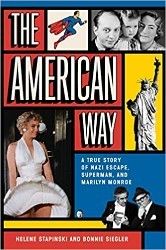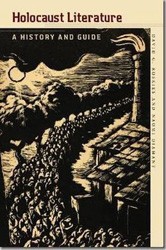While many might readily associate the word “tradition” with the great Yiddishist Sholem Aleichem, as well as with the internationally popular musical adaptation of his stories, Fiddler on the Roof, two new books suggest that the word “transition” would be considerably more apt. Jeremy Dauber’s delightful work, The Worlds of Sholem Aleichem, begins with the biographer’s own fragmented recollection of starring in a first-grade production of Fiddler. Every American of a certain age — Jewish or not — has her own particular Fiddler connection, Dauber postulates. He sets out to piece together what he can about the man who started it all, the “graphomaniac” who “did nothing less than create modern Jewish literature, modern Jewish humor, a modern Jewish homeland, in literature.”
Throughout this comprehensive biography, Dauber shapes his readings of Sholem Aleichem’s life and works partly as a response to the many myths and misconceptions that have abounded since (and often even before) the author’s death in 1916. Despite some of Aleichem’s most famous moments having taken place in New York — for example, his death and vastly attended funeral as well as his ultimately unsuccessful double premier on the Yiddish stage — the author was not as immersed in this “New World” as many seem to think. His time in America was short-lived in comparison to the time he spent living, writing, and traveling across Eastern and Western Europe. But this “Jewish Mark Twain,” as he was often referred to in his time, was not a sentimental folklorist either; he was not simply a traditionalist pining for the “Old Country,” for a simple and quickly vanishing way of life. Through careful retellings and analyses, Dauber presents a more nuanced picture: of a man torn between new and deep-rooted ways of life, a man who adapted to the pulls of new technologies, shifting cultural values, and political upheavals just as often as he resisted them.
Aleichem was also someone intensely and unswervingly tied to his family, and Dauber expertly navigates between all of these inevitably inseparable worlds to give us a full and generous portrait of this great cultural figure. As he writes in his introduction, turning a spotlight on Sholem Aleichem’s life is a way of entering into a conversation not only about the writer himself, but also about “American Jewish life and American Jewish history over the last century.”
If The Worlds of Sholem Aleichem affords us a meticulous account of an exceptional life story, as well as some of its afterlife (presented in an epilogue formed out of ten intriguing scenes), Wonder of Wonders zeroes in on that afterlife and takes us somewhere just beyond the worlds of Sholem Aleichem. Alisa Solomon’s engaging cultural history begins at the very end of Aleichem’s life. The opening chapter traces, among other events, Aleichem’s composition of the Tevye stories, his own adaptation of those stories into two screenplays written for the then-emerging medium of cinema, and his first success on the New York stage, which occurred three years after his death. From there, Solomon looks forward to the unexpected and dramatic twists and turns that inevitably led to the production — first of a successful and long-running Broadway play and then of an Academy-award winning film — of the cultural marker known as Fiddler on the Roof.
Solomon takes us on a revealing tour of the politics of creating a popular theatrical hit, carefully weaving that narrative alongside the changing historical conditions of Jewish American life, literature, and popular culture in the twentieth century. Just when so many Jews had become comfortable with their assimilated positions in American life, the story of Tevye and his daughters offered an opportunity for flaunting a kind of particularized Jewish pride that was far enough in the past as to be rendered a safe distance from the thorny ethnic politics of the mid-to-late twentieth century. But what is most intriguing about the Fiddler on the Roof story, as Solomon tells it, is the way its specific rendering of shtetl life has so often resonated for those without any direct connections to it. The last third of Wonder of Wonders, perhaps the most captivating of all, examines recent adaptations of the play — from a controversial high school production staged by mostly Black and Puerto Rican adolescents in Brooklyn to a one-night performance in a small town in Poland, a town still permeated by the obliteration of most of its Jewish population almost half a century earlier. As these powerful portraits reveal, Sholem Aleichem’s great imagination, in all of its adapted forms, maintains its relevance in a postmodern, some might say “postidentity” era perhaps best characterized by transition.
Additional Title Featured in Review
Related Content:
- Fiddler at Fify by Edward Shapiro





